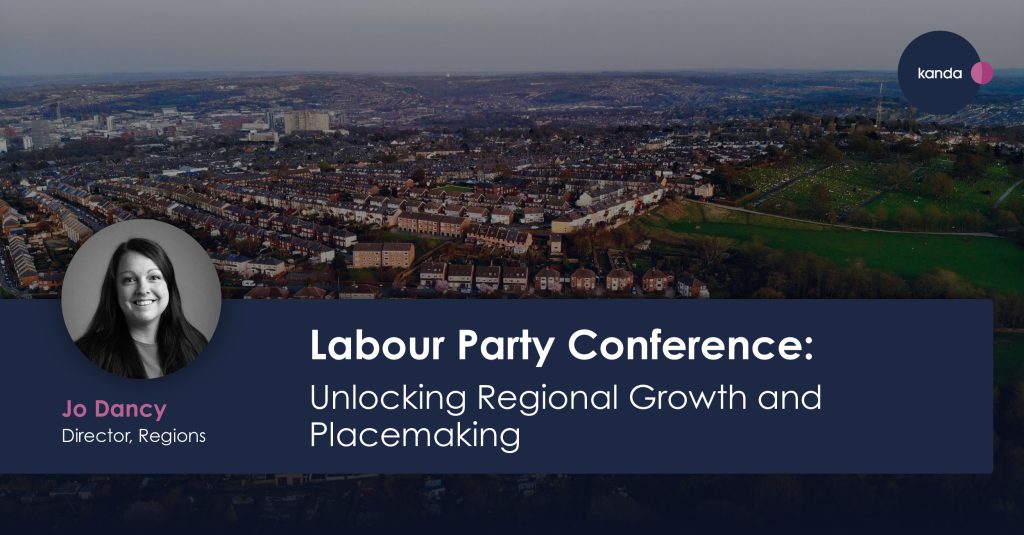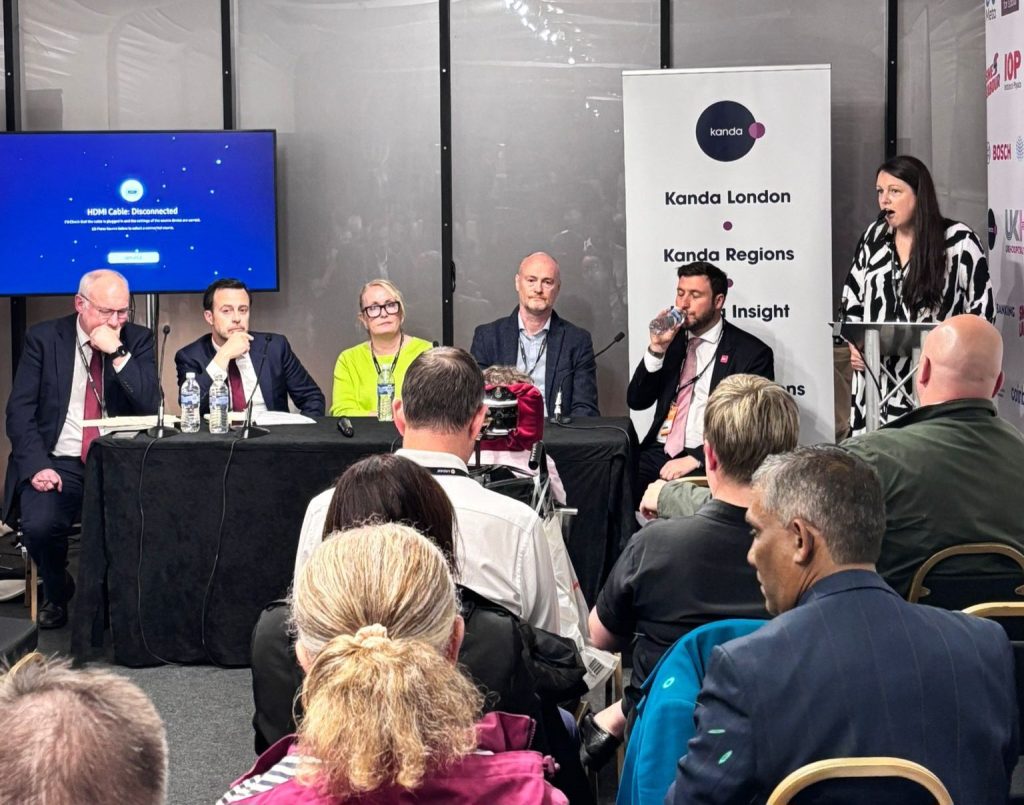
Written by Jo Dancy, Director, Regions.
As Director of Kanda Regions, I found there was much of interest at this year’s Labour Party Conference with the focus on housing delivery, economic growth and devolution.
In July 2024, the Government announced its intention to publish an English Devolution Bill and in her speech at Conference, Secretary of State Angela Rayner spoke about her plans to give more powers to Metro Mayors through a new white paper which “will map out how we will move power out of Whitehall”. Rayner referenced the staggering “eight devolution deals” she had agreed that week and committed to ensuring devolution was “irreversible”.
Speaking at various events, Jim McMahon, Minister for Local Government and English Devolution, reiterated this commitment saying he wanted Mayors “to be the national leaders of England”. The mantra of BIG, BOLD, BUT STRATEGIC echoed across the various panels, out of the mouths of both council leaders, combined authority representatives and members of parliament.
For the regions, this ethos is set against the proposed reforms to the NPPF, the consultation on which ended during Conference. Within this, the revised standard method for calculating mandatory housing targets will mean punchy increases: almost 28% for East of England, 35% for the South East, and a huge 43% for the South West. For the North, these increases are astronomical, rocketing to 76% for NW and 99% for NE (Source: Landmark Chambers/ DP9). This will require significant public sector resource to deliver.
At one panel event: ‘How can Metro Mayors help Labour achieve its missions for government?’, a Financial Times journalist stated that: “If Combined Authorities can’t help government with its mission to deliver 1.5 million homes, devolution will have failed – not the principle but the execution.” Everyone seemed to be very clear that local growth = national growth, with the reverse being equally true.
With such punchy housing targets, the plea echoing across the panels was the need for fiscal devolution and a funding revolution.
Combined Authorities were seeking clarity of their budgets from the new Government, and local authorities were desperate for an end to “14 years of austerity”, citing the siloed, cap-in-hand, short-term, restrictive grants-based approach which had led to 51% of them confirming that, without intervention, they would go under in the next 5 years. (‘The Future for Local Government and Communities’ panel – Fabian Society and Local Government Information Unit).

Kanda’s Panel event at Labour Party Conference on Regional Growth and Placemaking.
Minister Jim McMahon MP referenced a “One year emergency response” for local authorities to “get the car out of the ditch”, accompanied by something more long-term and resilient – no doubt a welcome message for local authorities across the country.
McMahon still felt that Combined Authorities were “the sweet spot” in terms of at-scale strategy, coupled with locally embedded democracy. At Conference, the mood was cautiously optimistic about the performance of Combined Authorities – caveated with the view that these new structures needed more time. Greater Manchester Combined Authority, the first to be established some 13 years ago has made solid progress but was still nowhere near catching up with London – and not everywhere is as progressive, organised, and pro-growth as Manchester.
Putting aside the call for major changes to funding/resources and the overhaul of the local / national planning process, many panels explored the relationship of nationally enforced housing targets and the work of the New Towns Taskforce, versus local democracy and placemaking, i.e. how to build quality at scale and pace.
Everyone agreed that housing is now a national crisis and that New Towns should be considered as national infrastructure projects. With this in mind, the view on delivery was bullish: national decision-making on where housing should go, and how much, was entirely appropriate. Local democracy would then manage how these should be built with design codes, sustainability, stewardship, affordability, well-being, and curation at the heart of placemaking.
There is much to do over the next few months and years – with the whole of England having a role to play in delivering much-needed economic growth and sustainable neighbourhoods. Certainly, at Conference, there seemed to be the ‘will and the way’ enthusiasm to make this happen, so let’s see what happens!
Kanda Consulting provides integrated communications support for businesses in the built environment, helping them achieve their corporate goals and desired outcomes for sites. If your business, site, or project would benefit from our expertise, get in touch with us at: info@kandaconsulting.co.uk
